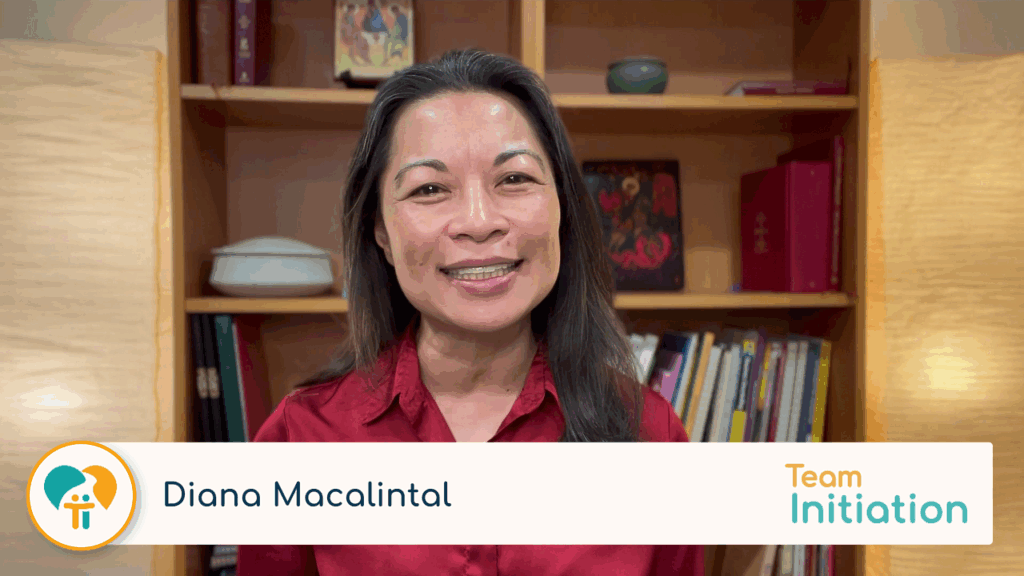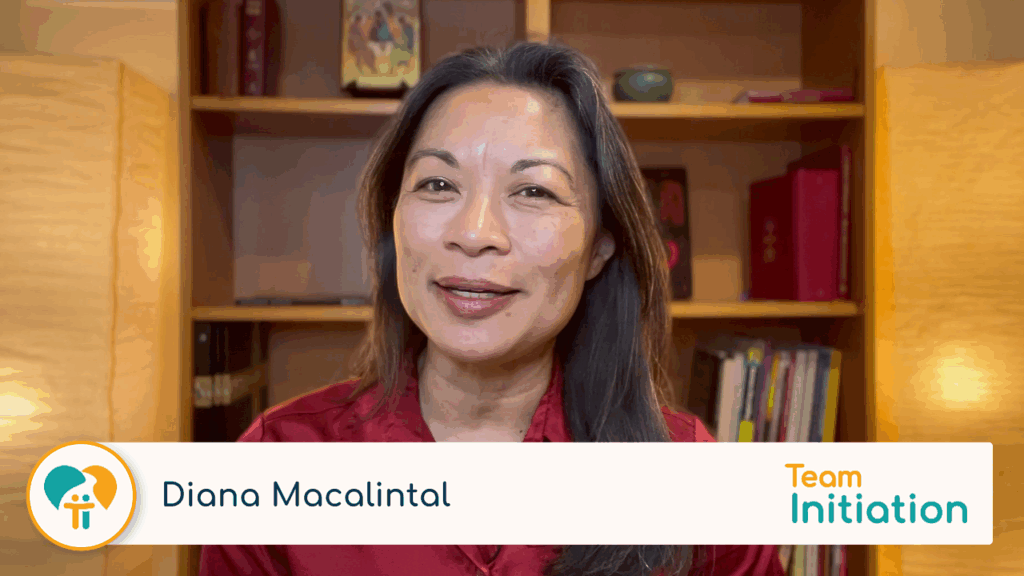When Pope Benedict XVI announced the Year of Faith, which began on October 11, 2012, he said, “We want this Year to arouse in every believer the aspiration to profess the faith in fullness and with renewed conviction, with confidence and hope” (Porta fidei, 9).
Three ways to renew our faith
As catechumenate ministers, how can we take up and live out the pope’s summons? We can do that in three ways.
First, as the pope goes on to say, we can “intensify the celebration of the faith in the liturgy, especially in the Eucharist” (9).
In addition, we can make our “witness…grow in credibility” (9).
Finally, we can “rediscover the content of the faith” (9).
Belief before knowledge
It is this last point, the content of the faith, that I want to focus on in this post. However, in focusing on the content, both for ourselves and for the catechumens, we have to always remember that heart comes first.
The pope says that “knowing the content to be believed is not sufficient unless the heart, the authentic sacred space within the person, is opened by grace” (10). Too often, our first question is what do I have to know, or what do the catechumens have to know. Instead, our first question ought to be, “In whom do I have to believe?”
Now here is a key thing about believing in a person. That belief is always public. We cannot believe in our children or our spouse “privately,” for example. Our family and friends expect us to stand up for them, just as we expect them to stand up for us. And the same is true with our belief in Christ. There is no such thing as a private faith. “A Christian may never think of belief as a private act,” says the pope. “Faith is choosing to stand with the Lord so as to live with him” (10).
Standing with someone, in turn, requires that we have some reason for doing so. We have to understand why we believe in the person we believe in, why it is we are willing to stand with them. And that is where knowledge becomes important. Once we have become smitten, we are compelled to learn more. Once we make a small commitment, a small assent, our hearts and minds are opened even further.
This is an ongoing, lifelong process, both with spouses and with the Lord. Initial faith leads to deeper knowledge, which leads to deeper faith, which leads to deeper knowledge, and so on.
You are the content
So where, then, do we find the content of the faith? If we are asking that question on behalf of the catechumens, the answer is us. The catechumenate is an apprenticeship, during which the catechumens learn the content of the faith as expressed in four ways:
- word and tradition
- community life
- prayer and worship
- service to those who need good news
The catechumens learn the content of the faith primarily by experiencing it “on the job” of being Christians.
If we are asking that question on behalf of ourselves, we have to say a bit more. We are not beginners in the faith, and so we have to go deeper in our understanding.
Vatican II Catholics
The pope inaugurated the Year of Faith on the fiftieth anniversary of the Second Vatican Council. That was not by accident. For the church today, the Second Vatican Council is the lens through which we have to understand our faith. If we do not understand what the council was about, we are not living up to our responsibility as catechists to know our own faith, and therefore we will falter at being able to teach the faith to the catechumens.
In a future post, I want to say more about how the Second Vatican Council guides us in our understanding of the faith. For now, though, I’d love to hear from you. What do you struggle with in your understanding of the council? Or what about Vatican II gives you renewed conviction, confidence, and hope about your faith? Please share your thoughts so we can learn from each other.



















I went through the RCIA and enjoyed the class. As I was going through the class, the connection with the sponsor was more they being in the class and showing up. What I took away after being baptized was you have the class unification but not the church. So since then I have dismissed myself from the Church and will initially go back on my own to return. The feedback I received was that you were more independent after RCIA. I understand it is important to follow your own path and journey. After talking with other RCIA members of a different church and race, they had the same interpretation. People can fill a church with empty hearts and out of habit — so where do you find the ones that are truly committed to help you on your journey?
Hi Teresa. I regret that your RCIA process did not create a sense of unity for you with your parish. That is supposed to be the goal of every initiation process, but too often it does not happen. I pray you will return and begin to make connections with your community. I’ll keep you in my prayers.
–Nick
I always tell the team and candidates that it (RCIA) is not a “head trip” but a “heart trip” – getting to know and believe in Jesus Christ. Also, I incorporate several prayer experiences – I live in the border of U.S. and Mexico and so Our Lady of Guadalupe is central to our faith here. On her day I tell her story and teach the candidates how to pray the rosary – using the Guadalupe story as the decades. Also I set up a Day of the Dead altar and invite the candidates to bring a memento of a loved one who has passed away. Great opportunity to teach about the Saints and the Church’s teachings on life after death.
Yes, RCIA should not only be informative but more importantly, FORMATIVE. The process should enhance the experience of Christ rather than more focused on the “do’s & dont’s” and the rituals of the church.
What renews my hope and my faith is the Vatican II image of the Church as the People of God. I think this is also important for our ministry in RCIA. I absolutely agree with Nick that our faith is first and foremost about a person: Jesus Christ. In addition, we are bringing folks into our Church, which is the Body of Christ. What I love about the Council is the way it highlight Church as People of God, in addition to Church as Body of Christ. Both images are important for us in RCIA.
What I particularly liked about Vatican II is that it made God reachable to me. The church became human, it was no longer a building, but a living, breathing unit of God. The council made it a possibility to participate. I grew up thinking that you had to be a nun or priest to be able to make a difference in Life. In RCIA, we first explain that it starts with building a relationship with Jesus thru worship, scripture, prayer community life. We ask them to look each week to see where they saw Jesus working in their life during the week. In addition we reinforce tradition and church teachings, in addition to reinforcing that this is just the beginning, it doesn’t stop at Initiation. It is their responsibility to continue studying and growing in their faith. The WORD is alive and talks to us continually throughout our life journey, we need to remain focused and in tune to Him.
Even though it takes some doing, every time I reread documents from the Second Vatican Council, it really does excite me. Is it the content, or the things spelled out for us to do or not do?? NO! It is primarily the fact that it was a time to recognize that faith is a living, breathing entity that, if not nurtured, will not flourish, but will die. We never know “enough” about our faith, and are destined for a lifetime of learning. The Bishops modeled this for us by gathering together and looking at how we as a Church also need to be nurtured and need to grow in our knowledge of self and the people whom we serve. It reminds me that I, too, must revisit each aspect of my faith to renew my excitement! A stagnant faith cannot bear fruit!
Teresa, I also regret that you experience of RCIA was not rich and deep. The fact that you called it “classes” is the first sign of that. It seems your RCIA team thought their job was to teach you doctrine, and that is surely part of it. But what you may have read elsewhere in this website is that it is the job of the community to gradually introduce you into its life in Christ. This is I think really the main readon we need a catechumenate that is a year long. It takes a long time to introduce newcomers into the many facets of parish life, not only its liturgy. In participating in inner city soup kitchens, parish missions, learning about the various ministries in the parish, etc. over time candidates/ catechumens can find connections with parishioners and begin to find a place where they feel comfortable. This is especially true in a large parish where, as you mentioned, you feel a bit lost soon after Easter season. The period after Easter is another aspect that really requires strong support for those newly baptized or received into the church.
I think it’s great that you were looking for and found this great website. In our RCIA we call the time spent a journey. My prayers are with you as you continue your journey of faith.